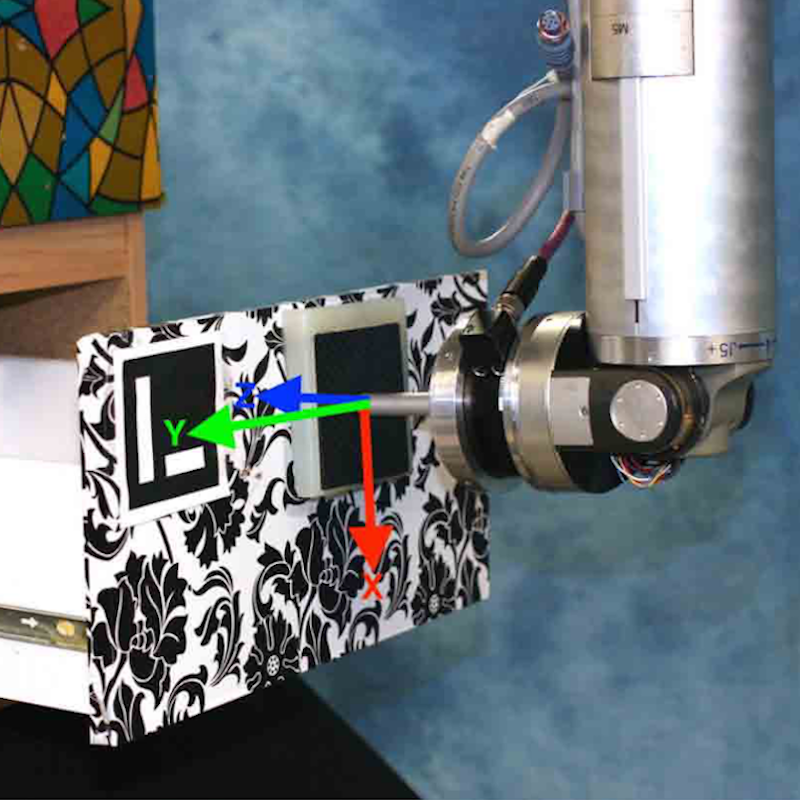Force-Controlled Action Primitives for Interactive Perception
Motivation
Interactive Perception exploits the robot capabilities to interact with the environment to reveal hidden properties, like the kinematic structures of articulated objects. However, when the robot faces a new environment, it needs to decide on how to interact to maximize the information gain based on sensor data, and use compliant controllers that allow the articulation to guide the motion.
Description of Work
In this thesis the student will have to develop a set of action primitives that allow the robot to autonomous explore previously unknown environments with the goal of discovering degrees of freedom. The primitives will be based on force control to use the articulation of the object to actively guide the interactions. The robot will use an RGB-D sensor to find the initial parameters for the action primitives. The interaction will provide new sensor information that will be incorporated to the online Interactive Perception framework to improve the results.
Further Reading
[1] “Open sesame!” adaptive force/velocity control for opening unknown doors Y Karayiannidis, C Smith, FE Vina, P Ogren, D Kragic Intelligent Robots and Systems (IROS), 2012
[2] Roberto Martín Martín and Oliver Brock. Online Interactive Perception of Articulated Objects with Multi-Level Recursive Estimation Based on Task-Specific Priors. IEEE/RSJ International Conference on Intelligent Robots and Systems, 2014


